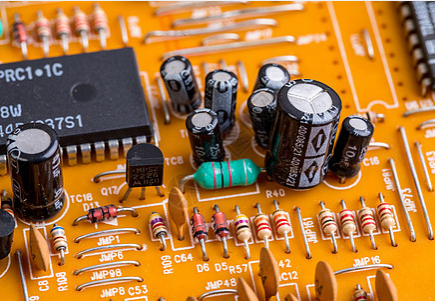At present, there are mainly three types of potting glue for PCB boards, namely, polyurethane potting glue, epoxy resin potting glue, and silicone potting glue. How to choose potting glue in the process of preparing PCB board? The following is a specific analysis of the advantages and disadvantages of the three potting glues.
1. Polyurethane potting glue
The temperature is required to be no more than 100 degrees Celsius. There are more bubbles after potting. The potting conditions are under vacuum, and the adhesiveness is between epoxy and silicone.
Advantages: Excellent low temperature performance, shockproof performance is the best among the three.
Disadvantages: poor high temperature resistance, unsmooth surface and toughness of the colloid after curing, weak anti-aging ability and UV resistance, and easy discoloration of the colloid.

Scope of application: suitable for pcb potting indoor electrical components with low heat generation.
2. Epoxy resin pcb potting glue
Advantages: Excellent high temperature resistance and electrical insulation, simple operation, very stable before and after curing, and excellent adhesion to a variety of metal substrates and porous substrates.
Disadvantages: The ability to resist changes in cold and heat is weak, and it is easy to produce cracks after being impacted by cold and heat, which causes water vapor to penetrate into the electronic components from the cracks, and the moisture resistance is poor. And after curing, the colloid has higher hardness and brittleness, which is easy to damage electronic components.
Scope of application: suitable for potting electronic components that have no special requirements for environmental mechanical properties under normal temperature conditions.
3. Silicone potting glue
advantage:
Strong anti-aging ability, good weather resistance and excellent impact resistance;
It has excellent resistance to cold and heat changes, can be used in a wide operating temperature range, and can maintain elasticity in the temperature range of -60°C to 200°C without cracking;
It has excellent electrical performance and insulation ability. After potting, it can effectively improve the insulation between internal components and circuits, and improve the stability of electronic components;
It is not corrosive to electronic components and does not produce any by-products in the curing reaction;
With excellent repair capabilities, the sealed components can be removed for repair and replacement quickly and easily;
With excellent thermal conductivity and flame retardant ability, it can effectively improve the heat dissipation capacity and safety factor of electronic components;
Low viscosity, good fluidity, able to penetrate into small voids and components below;
It can be cured at room temperature or heated, with good self-draining foam and more convenient use;
The curing shrinkage rate is small, and it has excellent waterproof performance and shock resistance.
Disadvantages: high price and poor adhesion.
Scope of application: suitable for potting various electronic components that work in harsh environments.
Among the many PCB potting glues, each has its own advantages and disadvantages. How to choose the electronic potting glue you need? Of course, we must first clarify the characteristics and requirements of our products, and purchase suitable products according to our process requirements.